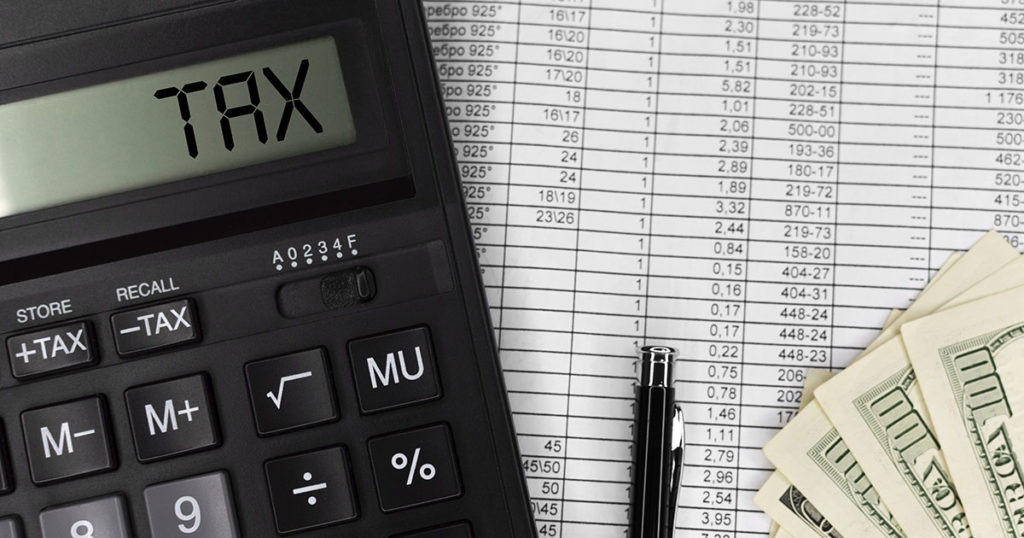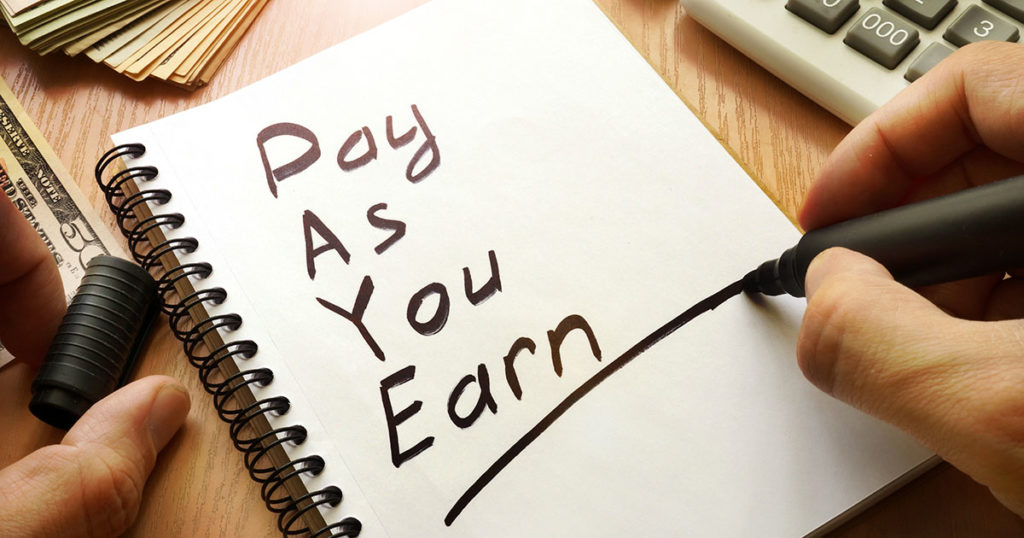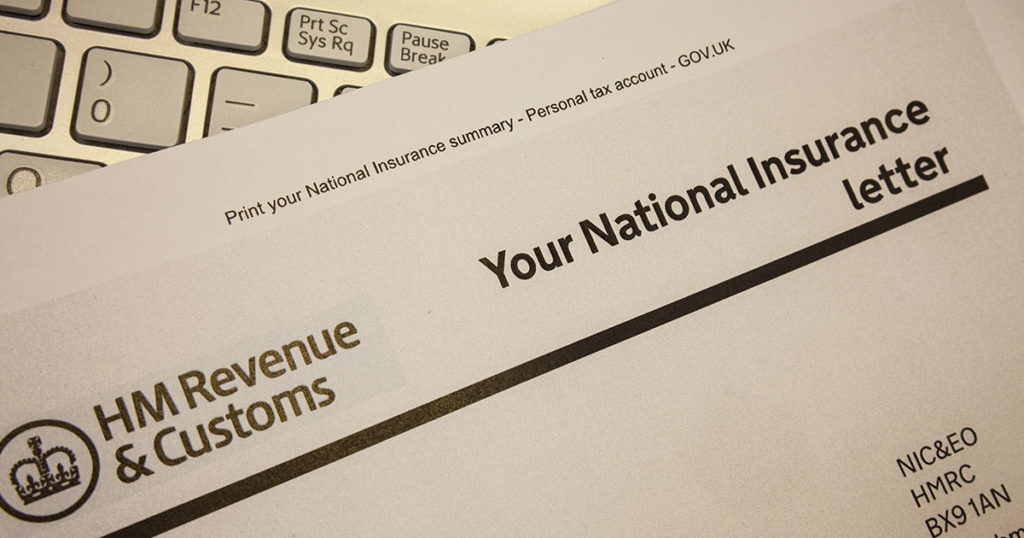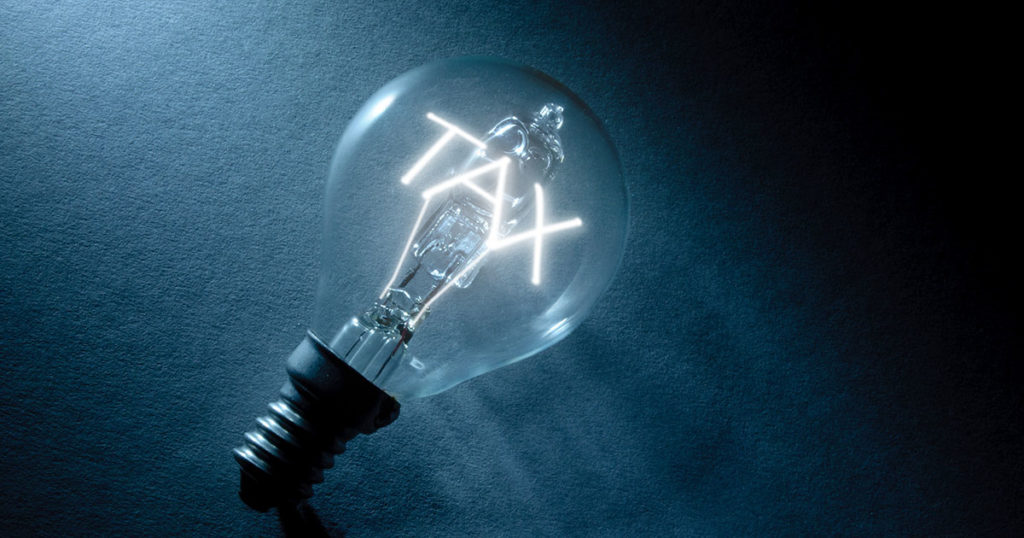
Want to learn everything there is to know about tax for your trade company?
Those dreaded letters H.M.R.C! Why do we all roll our eyes at the sound? Tax doesn’t have to be as taxing as we’re often told… so let us cut through the mustard for you, follow our tradesman’s guide to tax.
In this article we’ll look at:
- Income tax
- PAYE
- Help and guidance
- National insurance
- Corporation tax
- Value added tax (VAT)
- Business rates
- Conclusion
- Questions
Income tax

What is it?
Exactly what is says on the tin, tax that you pay on all of your income. Income includes employment earnings; self-employed profits, some state benefits; pensions; rental income, benefits from your job; and interest on savings over your savings allowance. National insurance is also deduced from employment income (salary and wages).
Who pays it?
Employees (on their wages), company directors and partners (if they are paid a salary) and sole traders. Company directors pay income tax on any salary taken from the business and any dividends received. Sole traders pay income tax based on the profits of your business.
You’ll start paying income tax once your profit goes above your personal tax allowance1. Income tax rates can be found here.
There’s personal income tax relief available and a self-employed income ‘trading allowance’ see the government Income Tax page3 for more allowances and reliefs.
How do I pay it?
For employees and directors being paid a salary income tax is usually collected via PAYE (Pay As You Earn) and paid directly to HMRC via payroll.
If you’re self-employed you’ll pay through Self-Assessment. You’ll do this by filling in a tax return every year. Register with the HMRC as Self-Employed as soon as possible. If you don’t, you could receive a hefty fine from HMRC as well as interest.
What’s the deadline?
PAYE is paid each month via payroll on the 22nd of the month.
Self-Assessment tax returns are filled on the previous year running from 6 April to 5 April (not the year you are currently in).You must complete and file your tax return and pay any tax by: 31 January. You can find upcoming deadlines for submission of your tax returns here.
Further tips: The government websites provide step by step guides to help you through the process, but you can always hire an accountant for professional advice.
It’s a good idea to put some money aside so you don’t come up short when your tax bill is due. The HMRC warns that you could face your first tax and national insurance bill shortly after you register as a sole trader.
Top Tip: Business expenses are tax deductible so be sure to stay up to date with the expenses you can claim for at Self-Assessment.
PAYE

What is it?
PAYE is an abbreviation for ‘pay as you earn’. PAYE is HM Revenue and Customs’ (HMRC) system of paying Income Tax and National Insurance from employment. Your PAYE bill can include: employee Income Tax deductions; class 1 and 1B National Insurance (you pay your Class 1A National Insurance bill separately); student loan repayments; Construction Industry Scheme (CIS) deductions and Apprenticeship Levy payments.
Who pays it?
Employers pay this on behalf of employees. Companies pay this on behalf of directors. As an employer, you normally have to operate PAYE as part of your payroll and you must keep payroll records.
PAYE deductions including income tax and national insurance need to be calculated and deducted from the gross wages and salaries of your staff and paid over to HMRC on their behalf. This is a monthly payment that’s deducted from your employee’s gross salaries, meaning that there’s no cost to your business.
Employer’s national insurance is also charged on the gross salary, this is not deducted from salaries and so it is an additional tax cost to your business.
How do I pay?
- Use payroll software to work out how much tax and National Insurance you owe, including an employer’s National Insurance contribution on each employee’s earnings.
- Then send a Full Payment Submission (FPS) to tell HMRC Revenue and Customs (HMRC) about payments to your employees and what deductions you’ve made.
- Claim any reduction on what you owe HMRC, for example for any statutory pay.
- Pay what you owe (usually each month).
What’s the deadline?
You must pay your bill by:
- The 22nd of the next tax month if you pay monthly
- The 22nd after the end of the next quarter if you pay quarterly (e.g 22 July for the 6 April to 5 July quarter)
Help and guidance
Check you are all set up for PAYE with www.gov.uk using their PAYE and payroll hub. You can also use the page to get started with your payment, and there’s the Employers: general enquiries page for any questions or concerns.
National insurance

What is it?
People pay National Insurance contributions (NI) to qualify for certain government benefits, and the State Pension.
Who pays it?
Everyone over 16 earning above the threshold (currently £166 a week or a profit of £6,365 or more a year if you’re self-employed). There are different classes1 of contributions which depend on employment status and how much you earn.
Your National Insurance responsibilities depend on the type of business you’re running, and whether you employ anybody. NI is payable at various rates and thresholds foremployees and self-employed people.
How do I pay?
Limited company directors will make NIC Class 1 payments directly to HMRC through their own PAYE payroll when you pay your salary. Sole traders making Class 2 and Class 4 NICs will usually do this through Self-Assessment.
You’ll pay your employees NIC Class 1 payments through your PAYE system, see Employers’ PAYE above for more details.
What’s the deadline?
This depends on your company structure. Sole traders will make their NICs through Self-Assessment every year, so the 31 January deadline applies.
For limited companies, you’ll need to keep up to date with your PAYE arrangements, ensuring that NICs are factored into this.
Tax for a Limited Company

Corporation Tax
What is it and who pays it? Corporate tax is the tax that all UK limited companies pay on their profits.
How do I pay it? What are the deadlines? You don’t get a bill for Corporation Tax. There are specific things you must do to work out, pay and report your tax.
- If you’ve registered as a Limited Company you’ll need to register for Corporation Tax here.
- Prepare a Company Tax Return to work out how much Corporation Tax to pay based on your accounting records.
- Pay Corporation Tax or report that you have nothing to pay by the deadline which is usually 9 months and 1 day after the end of your ‘accounting period’.
- File your Company Tax Return by your deadline which is usually 12 months after the end of your accounting period.
Your accounting period is normally the same 12 months as the financial year covered by your annual accounts.
You won’t get a bill for this tax, so it’s up to you to remember, work out and pay it. The rates are here, it’s currently charged on any profit generated that isn’t ring-fenced.
Top tip: you deduct the costs of running your business from your profits and pay tax on the reminder so make sure you include all of your expenses. A good accountant can help with this. The government website is a great resource if you need more information.
Value added tax (VAT)
What is it? VAT applies to most products and services sold in the UK. VAT is currently set at 20% of the price a customer buys the product or service.
Who pays it? All business, (limited companies and sole traders) if your annual turnover (sales) is £85,000 or more.
Once your business hits the threshold, you’ll need to start charging your customers VAT which means that you must add 20% on to your sales invoice values. VAT is charged to customers as a separate amount on an invoice and is then paid to HMRC. Just make sure keep the VAT amount separate from what your customers pay you or you’ll face a VAT bill that you can’t pay!
How do I pay?
- You can register your business for VAT at any timehere.
- All payments will need to be made electronically.
- You’ll need to make sure your payment reaches HMRC on time, to avoid a surcharge, so use gov.uk’s calculator to work out your timeline.
- When you’re ready to pay, use the VAT payment page to get started.
What’s the deadline?
VAT returns and payments are due on a quarterly basis. This period of time is known as your ‘accounting period.’ Generally, the deadline for submitting your return and making the payment are the same – one calendar month and seven days after the end of an accounting period. Your deadline will be shown on your VAT return (there deadlines are different if you use the Annual Accounting Scheme or payments on account). You’ll find your VAT return in your VAT online account.
Top Tip: You can reclaim any VAT you have paid on business-related purchases and expenses so make sure you record all of your expenses otherwise you could pay too much tax! This is how it works: VAT due to HMRC – VAT expenses paid out = money due to the HMRC!
Business rates
What are they and who pays them?
You’ll probably have to pay business rates if you use a building or part of a building for business purposes like: offices; warehouses; factories or a holiday rental. If you run your business from home and don’t have visiting customers or have not converted part of your home for the dedicated business activity, then you should not generally have to pay business rates.
How do I pay?
You’ll receive a bill from your local council in February or March2 each year. This will be for the upcoming tax year. Your local council will send you a business rates bill in February or March each year. This is for the following tax year. The deadline will depend on your individual council and will show on your bill.
Conclusion
So, in short, remember to keep business and personal expenses separate and keep receipts for everything. Be organised, if you remember to claim for everything you’ve paid tax on you’ll save yourself some money when it comes to paying your tax bill!
Use this as a guide to help you understand the different taxes associated with your trade business and make sure you pay your taxes in time to avoid extra charges! The .gov websites that we’ve referred to throughout this article are a great way to learn more and stay up to date with thresholds. Hiring an accountant is a good idea if you’re struggling or even to help you alleviate some of your tax bill.
Questions
Sole traders pay national insurance contributions. They also pay income tax based on the profits of your business through Self-Assessment. You’ll also need to pay VAT on purchases and charge VAT once you hit the threshold. You’ll also have to pay PAYE on behalf of any employees you have as well as employers NI contributions.
There’s personal income tax relief available and a self-employed allowance that you can benefit from. You’ll only start paying income tax once your profit goes above your personal tax allowance. Income tax rates can be found here.
Corporation tax on business profits. Possibly business rates if you’re using a premises for business purposes (see above). You’ll pay tax on dividends if you take them out. You’ll pay income tax and national insurance via PAYE on any salary you take. You’ll pay VAT on any purchases the business makes and you’ll have to charge VAT once your business hits the threshold.
Exactly what is says on the tin, tax that you pay on all of your income.
Employees (on their wages), company directors and partners (if they are paid a salary) and sole traders have to pay tax. Company directors pay income tax on any salary taken from the business and any dividends received. Sole traders pay income tax based on the profits of your business.
You’ll start paying income tax once your profit goes above your personal tax allowance1. Income tax rates can be found here.
For employees and directors being paid a salary income tax is usually collected via PAYE (Pay As You Earn) and paid directly to HMRC via payroll. If you’re self-employed you’ll pay through Self-Assessment. You’ll do this by filling in a tax return every year. Register with the HMRC as Self-Employed4 as soon as possible. If you don’t, you could receive a hefty fine from HMRC as well as interest.
PAYE is paid each month via payroll on the 22nd of the month. Self-Assessment tax returns are filled on the previous year running from 6 April to 5 April (not the year you are currently in).You must complete and file your tax return and pay any tax by: 31 January. You can find upcoming deadlines for submission of your tax returns here
Business expenses are tax deductible so be sure to stay up to date with the expenses you can claim for at Self-Assessment
The level of income tax you pay will depend on how much you earn. Here are the rates. For a sole trader your income is likely to be business profits. For a company director your income will depend on whether you take a salary and whether you’re being paid dividends.
People pay National Insurance contributions (NI) to qualify for certain government benefits, and the State Pension.
Everyone over 16 earning above the threshold (currently £166 a week or a profit of £6,365 or more a year if you’re self-employed). There are different classes of contributions which depend on employment status and how much you earn.
Your National Insurance responsibilities depend on the type of business you’re running, and whether you employ anybody. NI is payable at various rates and thresholds for employees and self-employed people.
Limited company directors will make NIC Class 1 payments directly to HMRC through their own PAYE payroll when you pay your salary. Sole traders making Class 2 and Class 4 NICs will usually do this through Self-Assessment. You’ll pay your employees NIC Class 1 payments through your PAYE system, see Employers’ PAYE above for more details.
This depends on your company structure. Sole traders will make their NICs through Self-Assessment every year, so the 31 January deadline applies. For limited companies, you’ll need to keep up to date with your PAYE arrangements, ensuring that NICs are factored into this.
Corporation Tax is tax that all UK limited companies pay on their profits.
You don’t get a bill for Corporation Tax. If you’ve registered as a Limited Company you’ll need to register for Corporation Tax here12; prepare a Company Tax Return13 to work out how much Corporation Tax to pay based on your accounting records; pay Corporation Tax14 or report that you have nothing to pay by the deadline which is usually 9 months and 1 day after the end of your ‘accounting period’ and file your Company Tax Return by your deadline which is usually 12 months after the end of your accounting period.
You deduct the costs of running your business from your profits and pay tax on the reminder so make sure you include all of your expenses. A good accountant can help with this.
It stands for Value Added Tax. VAT applies to most products and services sold in the UK. VAT is currently set at 20%18 of the price a customer buys the product or service.
All business, (limited companies and sole traders) if your annual turnover (sales) is £85,00019 or more. Once your business hits the threshold, you’ll need to start charging your customers VAT which means that you must add 20% on to your sales invoice values. VAT is charged to customers as a separate amount on an invoice and is then paid to HMRC.
You can register your business for VAT at any time.
All payments will need to be made electronically.
You’ll need to make sure your payment reaches HMRC on time, to avoid a surcharge, so use gov.uk’s calculator21 to work out your timeline.
When you’re ready to pay, use the VAT payment page22 to get started.

